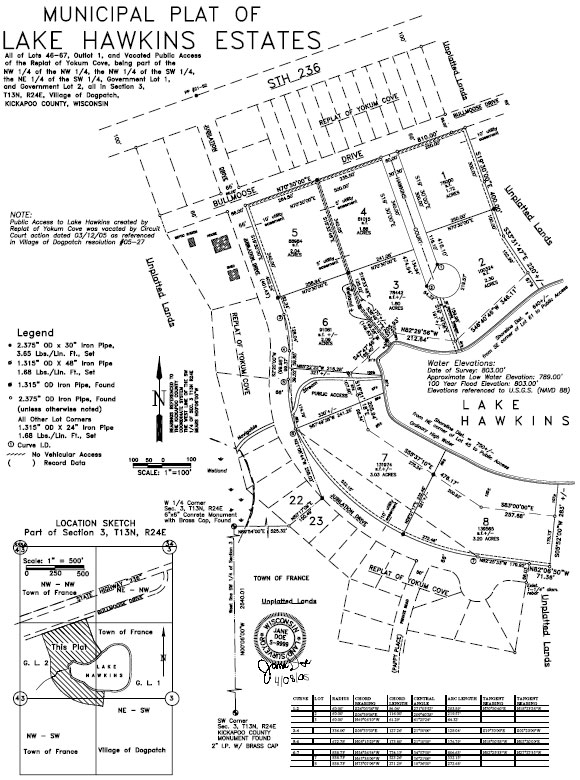Typical Plat Review Process
Role of the Plan Commission in Plat Review
All land divisions located within the platting jurisdiction of a city, village or town (with village powers) must be submitted to the plan commission for review and an advisory recommendation before the governing body takes final action. The governing body may also authorize the plan commission to review and approve preliminary or final plats. However, final plats dedicating streets, highways or other lands must be approved by the governing body.
Wis. Stat. §§ 62.23(5) and 236.10(3)
Plat review is required of state-defined subdivisions and most major land divisions, as that term is used locally. The first two steps in the following process are optional but may be required by a local ordinance:1
1. Pre-application conference (optional)
Early in the process, it is helpful to provide landowners and developers with an overview of the development review process and a checklist of requirements. Some communities require submission of a conceptual sketch of the land division. This enables the plan commission, governing body and staff to review the proposal, make suggestions, and point out issues related to compliance with local plans, ordinances and state law. This is an informal step designed to save the developer and local municipality time and money over the long-run.
2. Preliminary plat approval (optional)
Following the pre-application conference, the applicant may be required by a local ordinance or may opt to submit detailed plans and maps to the local unit of government showing the layout of streets,
lots, utility connections, natural features, topography and other pertinent information. The governing body or plan commission has 90 days to review these materials and make a decision to approve, conditionally approve, or reject the preliminary plat. Failure to act within this time period or extend the period for review constitutes approval. State statutes do not require, but it is recommended that local ordinances include review by objecting agencies. To comply with common law due process requirements, a public notice and hearing are recommended prior to preliminary plat approval. The local ordinance should contain specific hearing and notice requirements.
3. Final plat approval (required)

Applicants are required to submit a final plat to the Department of Administration. The Department is responsible for forwarding copies of the plat to all applicable approving and objecting authorities and may do so at the expense of the subdivider. The Department has 30 days and other objecting agencies have 20 days to review and object to the plat. The governing body or plan commission has 60 days to approve or reject the plat. If the final plat complies with local plans and ordinances, satisfies objecting agencies, and conforms substantially to an approved preliminary plat and any conditions placed on it, it is entitled to approval. Failure to act within 60 days or to extend the period for review constitutes approval, unless an objection has been registered. If the plat was not submitted for preliminary approval, a hearing and public notice are recommended prior to final approval.
4. Survey and recording (required)
Prior to final plat approval, the land must be surveyed by a registered land surveyor and monuments installed. The final approved plat and accompanying certificates of compliance are filed with the county register of deeds, which is responsible for providing notice to all objecting and approving authorities. The plat must be recorded within 12 months of last approval and within 36 months of first approval. The act of recording the plat has the effect of conveying all of the public dedications noted on the plat to the city, village, or town concerned.
1Wis. Stat. §§ 236.11-12 and 236.21-27




